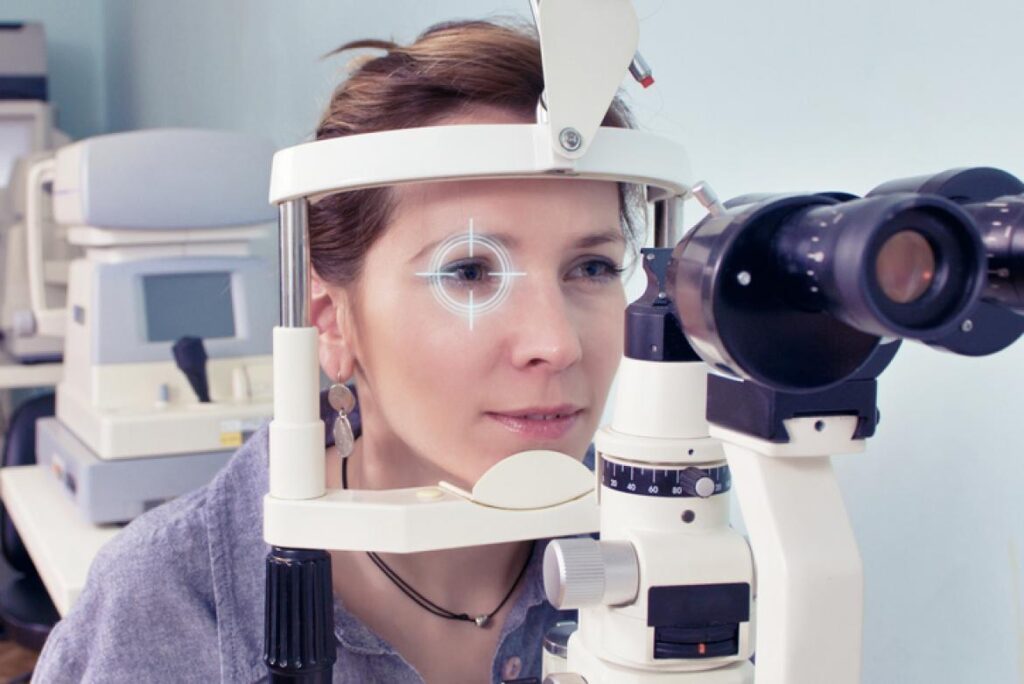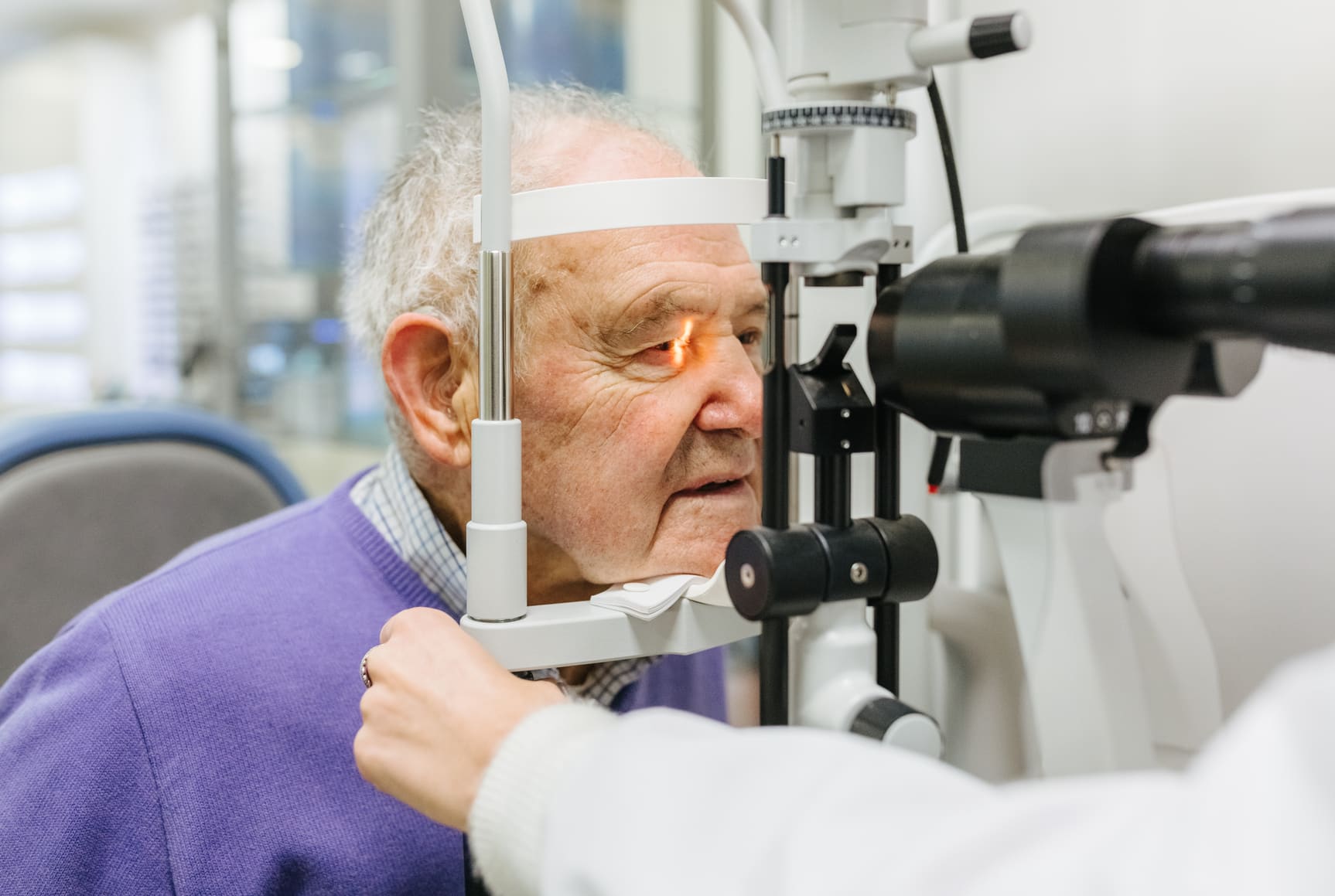The field of eye care is vast and complex, with different specialists focusing on specific aspects of ocular health. One such specialist is the retinal specialist, whose role in managing eye health is crucial. Understanding the responsibilities and expertise of a retinal specialist is essential for patients seeking the highest level of care for their eyes.
Understanding the Role of a Retinal Specialist
Eyes are intricate organs, and within them, the retina plays a critical role in vision. A retinal specialist is a medical doctor who specializes in diagnosing and treating diseases and conditions that affect the retina. This highly trained professional possesses in-depth knowledge and expertise in managing various retinal disorders.
Who is a Retinal Specialist?
A retinal specialist is an ophthalmologist with specialized training in vitreo-retinal diseases. After completing their undergraduate medical education and ophthalmology residency, retinal specialists undergo additional fellowship training specifically focused on diseases affecting the retina and vitreous.
They are experts in the intricacies of the retina, which is the delicate tissue lining the inside of the back of the eye. This specialist possesses expertise in treating conditions such as diabetic retinopathy, retinal detachments, age-related macular degeneration (AMD), and various inherited and acquired retinal disorders.
The Importance of Retinal Specialists in Eye Health
Retinal diseases can have a significant impact on vision and overall quality of life. The role of a retinal specialist is crucial in managing these conditions to optimize visual outcomes and preserve eye health. Their expertise allows them to diagnose and treat retinal diseases promptly, increasing the chances of successful management.
Early detection and intervention are vital when it comes to many retinal disorders. Retinal specialists have the knowledge and skills to identify subtle signs of retinal diseases even before symptoms become apparent. This ability to detect problems at their earliest stages allows for timely intervention and reduces the risk of vision loss.
Moreover, retinal specialists play a vital role in ongoing research and advancements in the field of retinal diseases. They are at the forefront of innovative treatments and surgical techniques, constantly seeking ways to improve patient outcomes. By staying up-to-date with the latest developments, retinal specialists can offer their patients the most cutting-edge and effective treatment options available.
Additionally, retinal specialists work closely with other healthcare professionals, such as optometrists and general ophthalmologists, to provide comprehensive eye care. They collaborate to ensure that patients receive the most appropriate and coordinated treatment plans, tailored to their specific needs.
In conclusion, retinal specialists are highly skilled medical professionals who specialize in diagnosing and treating diseases and conditions that affect the retina. Their expertise, ongoing research, and collaboration with other healthcare professionals make them an essential part of the eye care team. By entrusting your retinal health to a retinal specialist, you can have confidence in receiving the highest level of care and the best possible outcomes for your vision.

The Scope of a Retinal Specialist’s Work
Retinal specialists play a crucial role in the field of ophthalmology, focusing on the diagnosis and treatment of various retinal conditions that can significantly impact a person’s vision and overall eye health. Their expertise extends beyond routine eye care to encompass complex and delicate procedures aimed at preserving and improving patients’ eyesight.
Working at the forefront of eye health, retinal specialists are at the forefront of cutting-edge research and advancements in the field. They collaborate closely with other healthcare professionals to ensure comprehensive care for patients with retinal issues, often serving as key members of multidisciplinary medical teams. Learn more about multidisciplinary medical on https://www.ncbi.nlm.nih.gov/pmc/articles/PMC3186277/
Common Conditions Treated by Retinal Specialists
Retinal specialists are equipped to diagnose and manage a diverse array of retinal diseases and disorders that can affect individuals of all ages. In addition to the commonly encountered conditions such as diabetic retinopathy, age-related macular degeneration (AMD), and retinal detachment, they also address less prevalent but equally critical issues like macular holes, retinal tears, and retinitis pigmentosa.
Each condition presents unique challenges, requiring the retinal specialist to tailor treatment plans that take into account the specific needs and circumstances of the individual patient. This personalized approach underscores the importance of the specialist’s expertise in navigating the complexities of retinal care.
Procedures and Treatments Performed by Retinal Specialists
Retinal specialists are adept at utilizing a wide range of advanced procedures and treatments to address retinal conditions effectively. From intricate surgical interventions to minimally invasive techniques, they employ tools such as retinal laser therapy, intravitreal injections, vitrectomy surgery, and retinal cryotherapy to restore and preserve vision in their patients.
By staying abreast of the latest developments in retinal care and continuously honing their skills, retinal specialists are able to offer innovative solutions that can make a significant difference in the lives of those grappling with complex eye issues. Their commitment to excellence and patient-centered care sets the standard for quality in the field of ophthalmology.
The Retinal Specialist’s Approach to Eye Health
The path to managing retinal disorders requires a comprehensive and individualized approach. Retinal specialists follow a well-defined process to ensure that each patient receives optimal care.
Initial Consultation and Diagnosis
The journey begins with an initial consultation, during which the retinal specialist conducts a detailed evaluation of the patient’s medical history and performs a thorough eye examination. This examination often includes imaging tests such as optical coherence tomography (OCT) and fluorescein angiography to obtain detailed information about the condition of the retina.
Beyond the physical examination, the retinal specialist takes the time to understand the patient’s symptoms and concerns. This holistic approach ensures a comprehensive understanding of the patient’s condition, enabling the development of a personalized treatment plan.
During the consultation, the retinal specialist may also discuss the potential risk factors associated with the patient’s condition. These risk factors can range from genetic predisposition to lifestyle choices, such as smoking or excessive exposure to sunlight. By addressing these factors, the retinal specialist aims to not only treat the existing condition but also prevent future complications. Click here to learn more about smoking.
Creating a Personalized Treatment Plan
Based on the diagnosis, the retinal specialist collaborates with the patient to develop a tailored treatment plan. This plan takes into account the severity of the condition, the patient’s overall health, and their individual goals and preferences.
The treatment plan may involve various modalities, including medications, injections, laser therapy, or surgical interventions. The retinal specialist carefully explains each treatment option, discussing the potential benefits and risks involved. This open and transparent communication empowers the patient to make informed decisions about their eye health.
Furthermore, the retinal specialist emphasizes the importance of regular follow-up appointments to monitor the patient’s progress. These appointments allow the specialist to assess the effectiveness of the treatment plan and make any necessary adjustments. By closely monitoring the patient’s condition, the retinal specialist can ensure that the treatment remains on track and provide timely interventions if needed.
In addition to medical interventions, the retinal specialist may also recommend lifestyle modifications to support the patient’s overall eye health. These modifications can include dietary changes, regular exercise, and protective measures to minimize exposure to harmful environmental factors.
Ultimately, the retinal specialist’s approach to eye health encompasses not only the treatment of retinal disorders but also the promotion of long-term visual well-being. By combining expertise, personalized care, and ongoing support, retinal specialists strive to optimize outcomes and enhance the quality of life for their patients.
Collaborative Care in Eye Health
Retinal specialists are not isolated figures in the eye care landscape; instead, they work in close collaboration with other eye health professionals to provide comprehensive care to patients.
Collaboration in eye health extends beyond the confines of individual specialties, creating a network of expertise that benefits patients facing complex ocular conditions. This collaborative approach ensures that patients receive the most effective and personalized care tailored to their specific needs.

Working with Other Eye Health Professionals
Retinal specialists collaborate with optometrists, general ophthalmologists, and other eye care specialists to ensure coordinated and integrated treatment. This collaboration extends to pre-operative and post-operative care, allowing for a seamless transition between different stages of treatment.
Each member of the eye health team brings a unique set of skills and knowledge to the table, enriching the overall quality of care provided to patients. By working together, these professionals create a supportive environment where expertise is shared and patient outcomes are optimized.
The expertise and perspective brought by each specialist contribute to a comprehensive understanding of the patient’s condition, leading to optimal care and the best possible visual outcomes.
The Retinal Specialist’s Role in a Multidisciplinary Team
In complex cases and conditions that affect multiple aspects of eye health, a multidisciplinary team approach may be necessary. Retinal specialists play a crucial role within such teams, providing their expertise and collaborating with other specialists to develop a unified treatment plan.
Within a multidisciplinary team, communication and cooperation are paramount. By fostering strong relationships with other eye health professionals, retinal specialists ensure that patients benefit from a cohesive and well-coordinated approach to their care.
The interdisciplinary nature of these teams allows for a holistic approach to patient care, ensuring that every aspect of the individual’s ocular health is considered and addressed.
The Future of Retinal Specialization
Retinal specialists are at the forefront of advancements in the field of eye health. As technology and scientific understanding continue to evolve, the role of retinal specialists will expand and become even more critical.
Advances in Retinal Treatment Techniques
Ongoing research and technological innovations are driving the development of new treatment techniques for retinal diseases. Retinal specialists embrace these advancements and strive to incorporate them into their practice, offering patients the most advanced care options available.
One such advancement is the use of gene therapy in the treatment of inherited retinal diseases. By targeting specific genes responsible for these conditions, retinal specialists can potentially halt or even reverse the progression of vision loss. This groundbreaking approach holds immense promise for patients with previously untreatable genetic retinal disorders.
The Evolving Role of the Retinal Specialist in Eye Health Care
As the understanding of retinal diseases deepens, the role of the retinal specialist will continue to evolve. With their unique expertise in managing retinal conditions, these specialists will play increasingly important roles in developing protocols, conducting research, and educating other eye care professionals.
Retinal specialists are not only focused on the treatment of retinal diseases but also on the prevention and early detection of these conditions. Through the use of advanced imaging technologies, such as optical coherence tomography (OCT), retinal specialists can identify subtle changes in the retina that may indicate the presence of disease before symptoms manifest. This proactive approach allows for earlier intervention and improved outcomes for patients.
The future of eye health care relies on the continued growth and expertise of retinal specialists, ensuring that patients have access to the highest standard of care.
In conclusion, retinal specialists are instrumental in managing eye health. Their specialized knowledge and expertise in diagnosing and treating retinal diseases allow for timely intervention and maximized visual outcomes. By working collaboratively with other eye care professionals, retinal specialists ensure comprehensive and integrated care. As the field of retinal specialization continues to evolve, these specialists will contribute to advancements in treatment techniques and play vital roles in shaping the future of eye health care. If you have concerns about your retina, consult a retinal specialist to ensure that you receive the specialized care your eyes deserve.
Find more: Navigating Retinal Diseases Symptoms, Diagnosis, and Treatment

